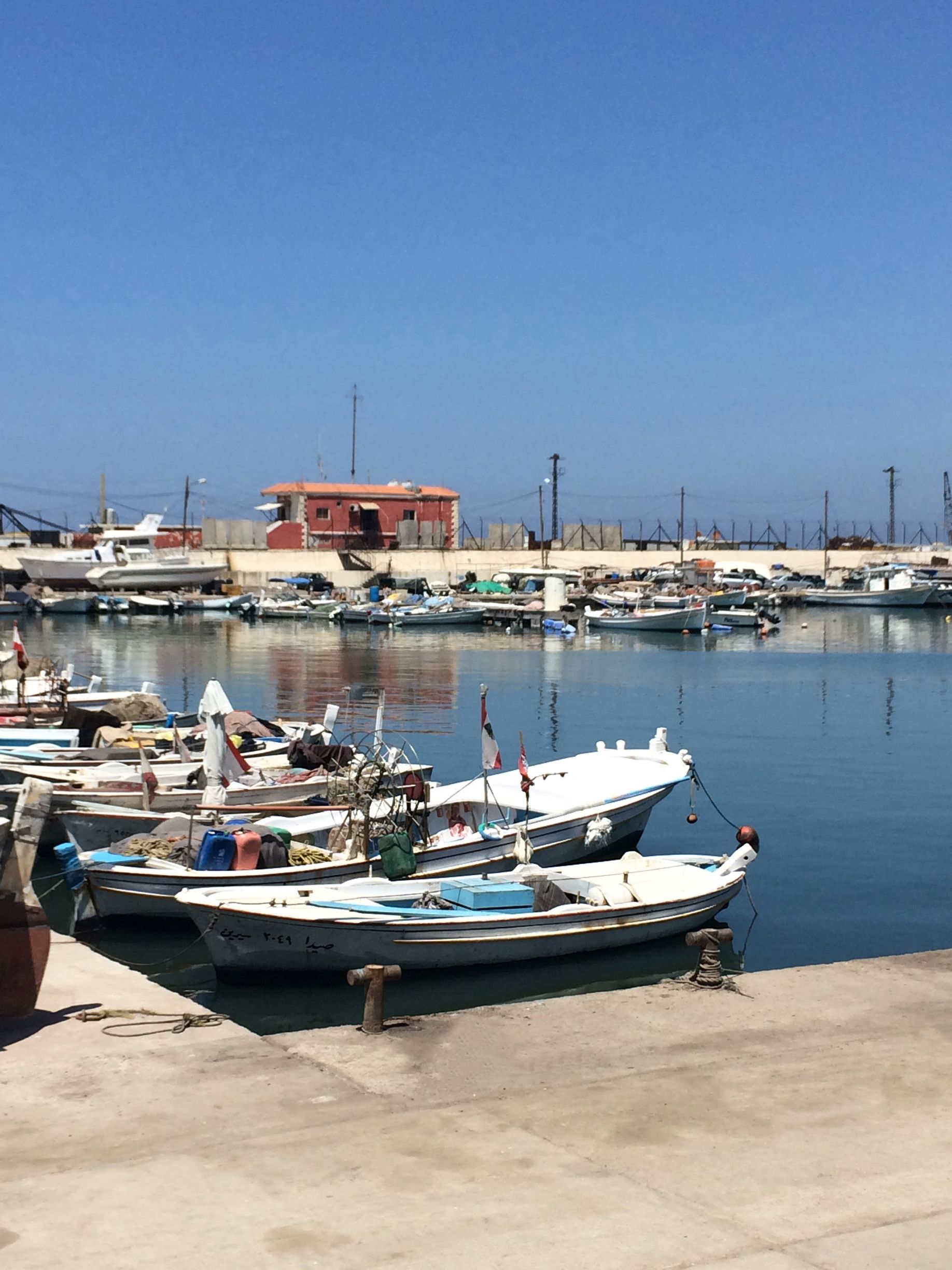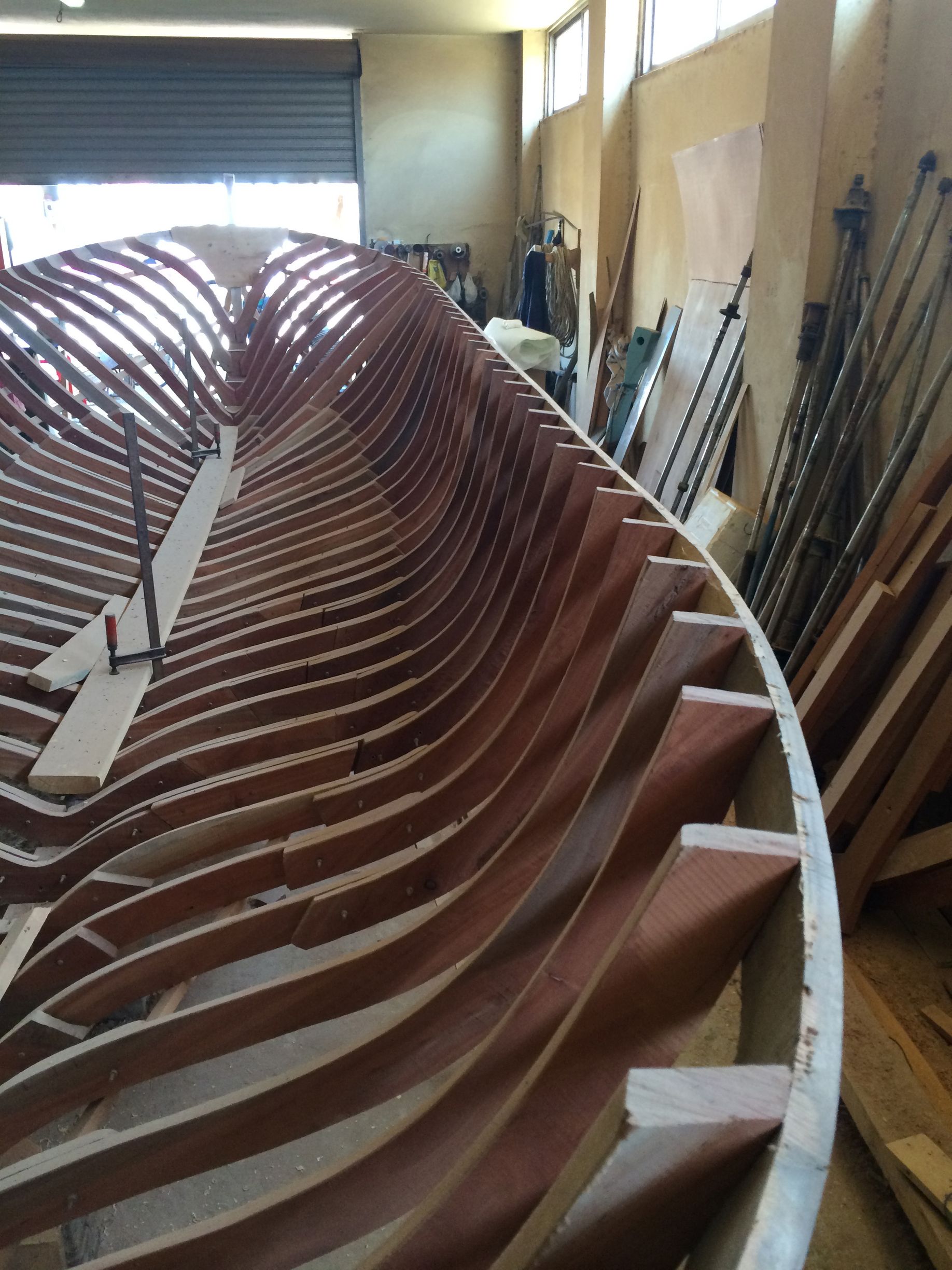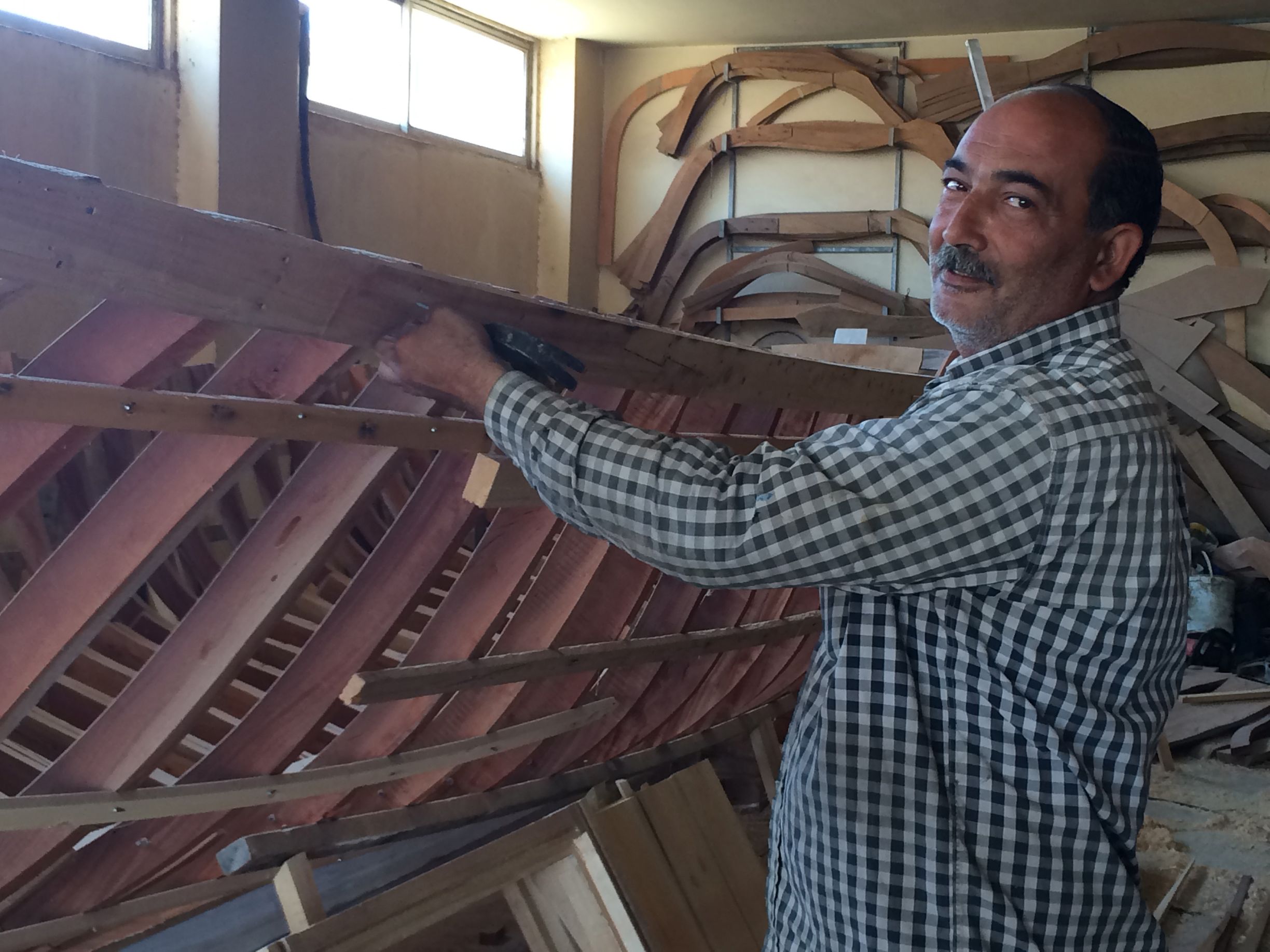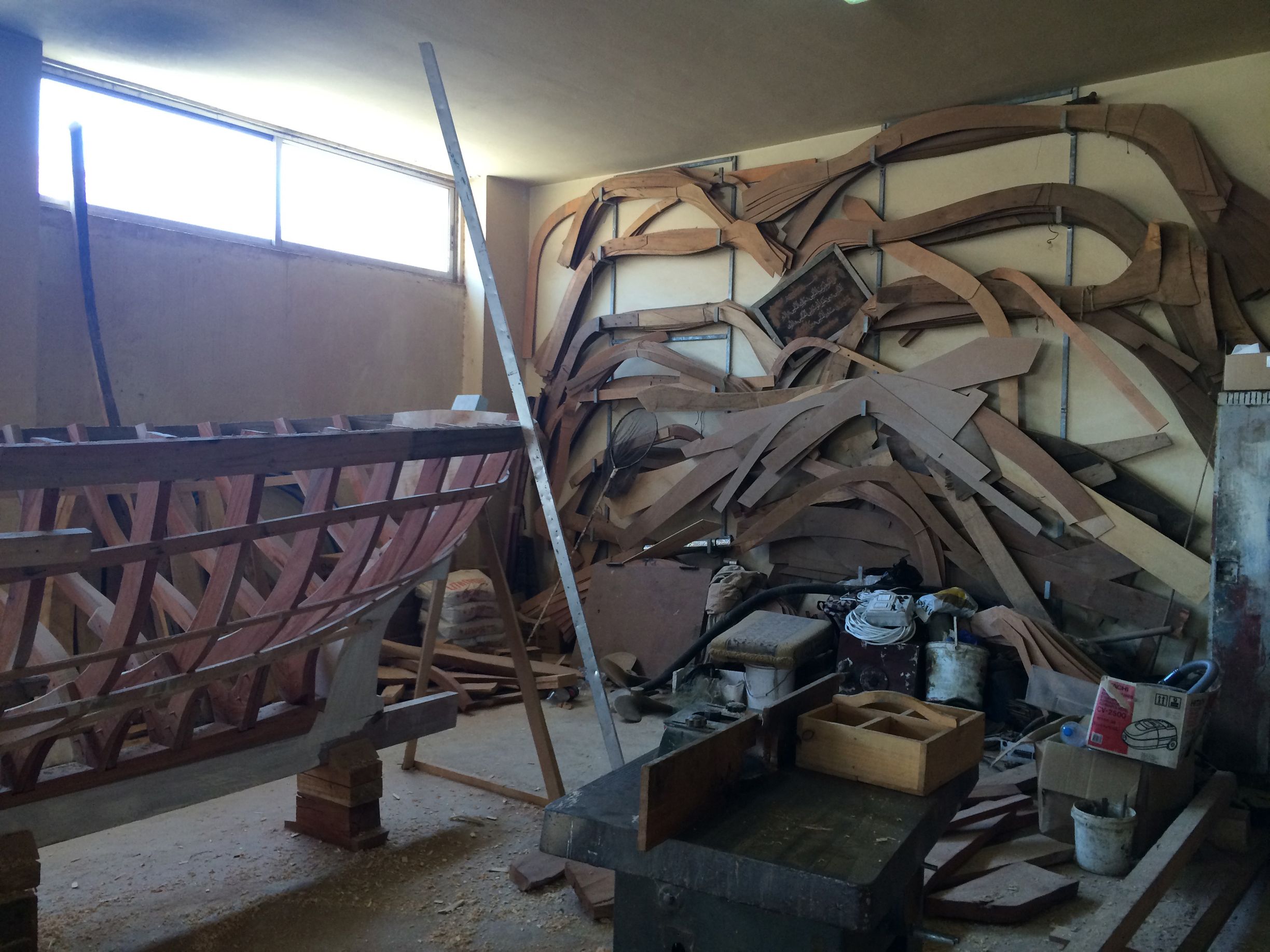Building boats for the fishermen in Lebanon, one modest workshop in the southern city of Saida continues the ancient traditional practice.

Hidden out of public view on the edge of the harbor is Nasser Accad’s boat building workshop. In the center stands the skeleton of a boat in its early stage of production. Here, the smell of freshly-cut wood and sawdust overwhelms the scents of the ocean.
For Accad boat building is the only life he’s known. His small team of carpenters includes his brother Webhe and his son Ahmed, who has worked with his father for years. Accad believes boat building is a labor of love. “I love everything about it. I go home at night after a day’s work and still think about it and how I can make it better,” he says. “I can’t not think about it. It’s my passion.”

The boats are made for a harsh life at sea, durable against challenging weather with a lifespan of at least 20 years. “The wood’s lifespan is endless,” Accad says. “Even after 20 years it’s not the wood that is damaged but the nails that need replacing.”

Though the elemental shape of these traditional fishing boats remains the same, models vary in their details with every port having a preference – in Tyre there’s a preference for smaller boats, in Beirut they prefer a roof.

Here, the family of carpenters doesn’t only spend their life on land, their relationship with the sea is strong, and for pleasure they head out to sea to fish at 3 am on most days. For Accad, there is no other work he’d rather do. “If you don’t love what you do, you can’t do it,” he says.
Loading
